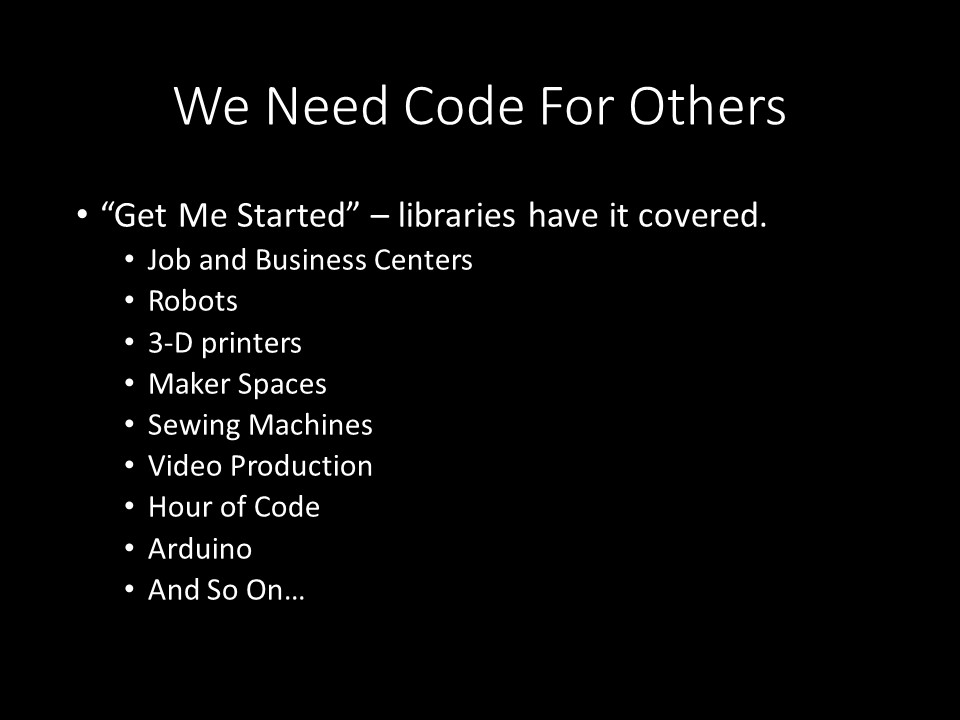M.jpg)
In schools, there's a big move for STE(A)M education. In libraries, this often translates to the creation of or collaboration with Maker spaces to put on programs and provide interesting things for users to do with technology. Three-dimensional printers are a popular option for those spaces, as are more traditional Making tools such as saws, hammers, sewing machines, and video and audio production and editing tools. Creation is the big word at the moment, and working with technology to do something is the backbone of a lot of STE(A)M programs in public libraries.

My library system divides the kinds of questions and requests that the library receives into three large general buckets:
- Get Me Started
- Help Me Solve Problems
- Keep Me Interested
The first bucket is a pretty common one, and what usually comes to mind when people first think of libraries. Someone needs to do something new to them, and the library is a place full of resources and helpful people that can get someone oriented and moving in the right direction. For example, during the Great Recession's worst points, public libraries were inundated with people who hadn't had to apply for work in decades, which meant getting up to speed on where jobs would be posted, learning how to create electronic versions of important documents like resumes and cover letters, and navigating the questions and forms of online job application sites. Our library created the Job and Business Center website and designated computers for extended sessions so that those new to the session could apply and navigate the wilds without worrying about the computer shutting down on them and losing all of their work.
When it comes to STE(A)M education and Maker spaces, public libraries are often touting programs like a Lego Mindstorms programming session or the Hour of Code - introductory elements that assume no prior experience and that are geared toward giving someone a good first experience testing the waters of coding and directing technology to do what you want, instead of solely using someone else's code and materials in the way they want. Many of the programs that you'll find at a local library that are for children are geared this way, as are many of the orientation and equipment usage classes for using the Maker space. These beginning classes have a purpose - it's not going to be productive to throw resources at a person that doesn't understand how to use them or how to take what you're giving them and synthesise it for their own needs.